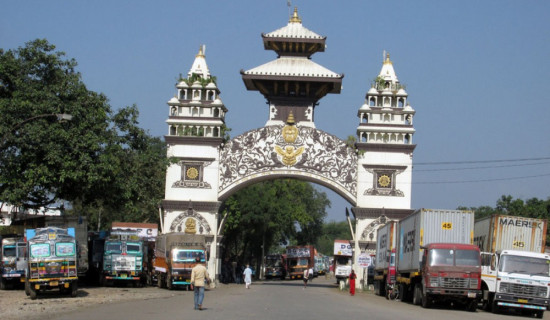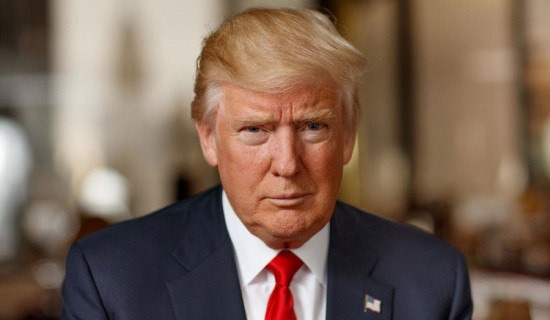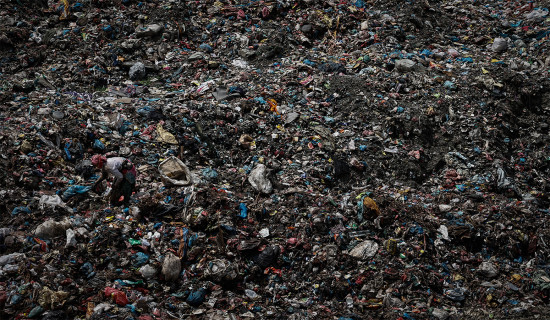- Sunday, 15 February 2026
Ethical Business Vital For Justice And Peace
Business ethics presumes a set of moral and constitutional principles that governs the behaviour of economic transactions. It spurs businesspersons’ compliance of law by adhering to acceptable behaviours beyond the canons of discipline and penalty. Ethical principles generally include sincerity, fairness, honesty, kindness, deference, accountability to the public, loyalty to consumers and abidance of the laws and rules of the land where business is conducted. Nepali business sectors have to flash a new social image rooted in the native virtues of shuva lava (just business practices), not just stockpile profits. They can nurture what Buddha says is the right livelihood by adhering to the ethical practices, adopting strong social policies, bonding with change agents of society -- labour, civil society, human rights bodies and media and setting a drive for prosperity that makes them responsible stakeholders of Nepali society.
Their honesty in paying taxes and contribution of part of their profits to social development cuts any weariness about them. The art of prosperity can come about when Nepalis have sufficient incentives to elevate their standards as social beings, nurture cooperative behaviour and complement each other’s resources, skills and expectations in business transactions. Nepal’s welfare state needs to be accompanied by reforming the governance actors of which the private sector is an intrinsic part so that it can inspire more and more associations into the circle of economy of peace and justice to work for process-driven and performance-based payoffs.
Business-friendly atmosphere
To be sure, powerful movements in Nepal for ecological, social, gender and intergenerational justice, reciprocity and peace have made a considerable dent in the social, economic and political structures that bred a high magnitude of contradictions. Political and business actors find them difficult to resolve for reasons of moral, institutional and resource deficits, not lack of policies. Economy can grow in a condition of a business-friendly political and legal environment. Now Nepali economy is operating far less optimally. Businesspersons and the government have a special responsibility to unleash the potential of Nepalis and realise the vision of constitution — to create an egalitarian society. Only the equality of law can serve the eternal spring of prosperity - the others like land, division of labour, suitable technology, natural resources, labour, trade, transaction, political economy of scale and prudent bureaucracy add fillip to it.
The radical elements often harbor negative feelings for businesspersons for their flip side in resorting to invisible hands, corrupting leaders and public servants and indulging in commerce rather than boosting the real economy -- agriculture and industry and, therefore, deem them the cause of inertia. On the positive side, moderates esteem their roles in building connections with the family, society, nation-state and global civilisation, matching supply and demands and harnessing the potential of the great transformation, thus laying the economic foundation on what Adam Smith calls moral sentiment of justice and peace.
Business sector in Nepal is a high leverage actor. It has the ability to improve provision, production and exchange of goods, reduce transaction cost and address looming livelihood crises. It can do so only if it does not resort to collusion, monopoly and arbitrary price-fixing thus creating scarcity of public goods in favour of self-love. Public good is the concrete foundation of justice. Nepali business persons are well connected to the general society, political parties, media, parliament and the state institutions, influence their policies and have the ability to forge national consensus in matters of economic policies. Leaders of Nepali business chambers are, however, expecting morale boosting impetus from the government for their entrepreneurship and coordination so as to float the national economy in the right direction. Public interest criteria is important to get societal support and optimise a balance between profit and social responsibility and steam forward.
But, like political society, business has more utilitarian propensity than voluntary ones like the charity and altruism of traditional social institutions. Tom Butler-Bowdon expresses the raw truth about it. He says,‘‘each of us is very much an economic being who must produce things of market value if we are to survive and thrive.“ Nepal now requires a big impulse in agricultural and industrial progress - former for satisfying livelihoods and later for trade and commerce and reduce lopsided import-based, aid-addicted and remittance-driven unsustainable symbolic economy. Robert Solow has discovered that economic progress rests on educated people. In Nepal, however, when the equality of education, which is a passport to knowledge economy, is unequal, the distribution of outcome turns skewed. Many private colleges are focusing on the economic value of their education and skills acquisition. This is vital to gain a place in a competitive job market. But it might reduce them into the cog of an economic machine with no human or national affection.
Elite education‘s sense of unfeeling may generate status conflict in society. Health sector too is suffering from the same disease. Uneven creation of human capital may spawn an economic and technological divide where both can be linked to macro-actors for support and legitimacy of their demands breeding conflict and hobbling business milieu. Since old politics of columanisation (each party has its own human rights bodies, business chambers, trade union, media house, student union, women’s organisation, NGOs, etc.) is fraying and voters’ partisan attachment is sagging many conflict circles that influence the perception, attitude and behaviour of the actors of national polarisation are surging thus turning each action of the regime contentious. Power bloc politics precisely reflects fractious establishment while others outside the blocs are uttering voices of robbing youths‘ future by easing labour migration and brain drain.
The macro actors too form perception to circulate down to various layers of politics for socialisation and support. This works in a mutually reinforcing way thus vitating business-friendly milieu. Turning this vicious cycle of distrustful politics into a virtuous cycle of multi-actor cooperation is a challenge for business but it is vital to ease justice dividends. Many social projects of the business houses, such as trusts, foundations and charities have addressed some of the woes of Nepali society, if not all. As macro actors of system political leaders are driven by the calculation of power, resource and identity they will not change their behaviour by pious messages without proper incentives. This means either business groups together with other powerful actors of society should be able to generate huge costs for those non-cooperating actors or sufficient incentives for them so that they can listen to the voice of people for justice and work to eliminate the future sources of conflict.
The business community can point to the weakness of governance only if it can flex a degree of autonomy from partisan politics. The power brokers arbitrate the use of rules straining Nepal’s evolution into a modern state able to keep autonomy in society, entrench in people’s lives and become representative of the nation's mosaic. When leaders in every sector of society are comfortable with weak institutions and fear the development of impartial institutions, rules and processes, it is hard to sustain social, economic and political stability. Nepali leaders habitually form a coalition regime irrespective of different ideological orientations of its partners to stick to power. Younger generation claims to replace them but they lack a coherent vision about transforming institutional culture, rules and processes.
Business persons can disperse innovation, entrepreneurship and production structures in the entire society, not just in cities only and dole out incentives for productive business that can shape the cognitive contours of a sustainable national economy. Nepal is also facing a problem as individual leaders and businesspersons are thriving fast relative to national progress. Some vital working areas can be identified for business initiatives for peace and progress. The primary one is on policy dialogue beyond conformist and group-think mentality. Nepal‘s main historical challenge is that the nation’s politics has renounced policy making duty, less inclusive to capture the complexity of society and absolve itself from blame culture to openness to mutual learning.
Misallocation of resources
Policy after all is rooted in politics, public opinion and the framework conditions where it has to be implemented. What the policy wonk puts in policy content is related to what context leaders need to address. Second, who will implement the policy, how barriers to implementation can be overcome and how beneficiaries of policy are clustered around the support system to policy are equally significant. Another area is how to minimise the effects of the economy of violence, or a sort of reckless free-riders who often deviate from public interest and indulge in predation, corruption and misallocation of resources thus hurtling the nation toward anomie.
Finally, Nepali regime (economic or political) is survival-oriented and it operates under its own logic of patronage. As a high leverage actor, Nepali businesspeople can play a very constructive role in a robust economic growth to generate sufficient surplus to finance public infrastructure and the welfare state which can create conditions for justice and peace for all. They must be reflective of their own deeply internalised practices and understand the merits of going together with other stakeholders of society and the nation.
(Former Reader at the Department of Political Science, TU, Dahal writes on political and social issues.)
















